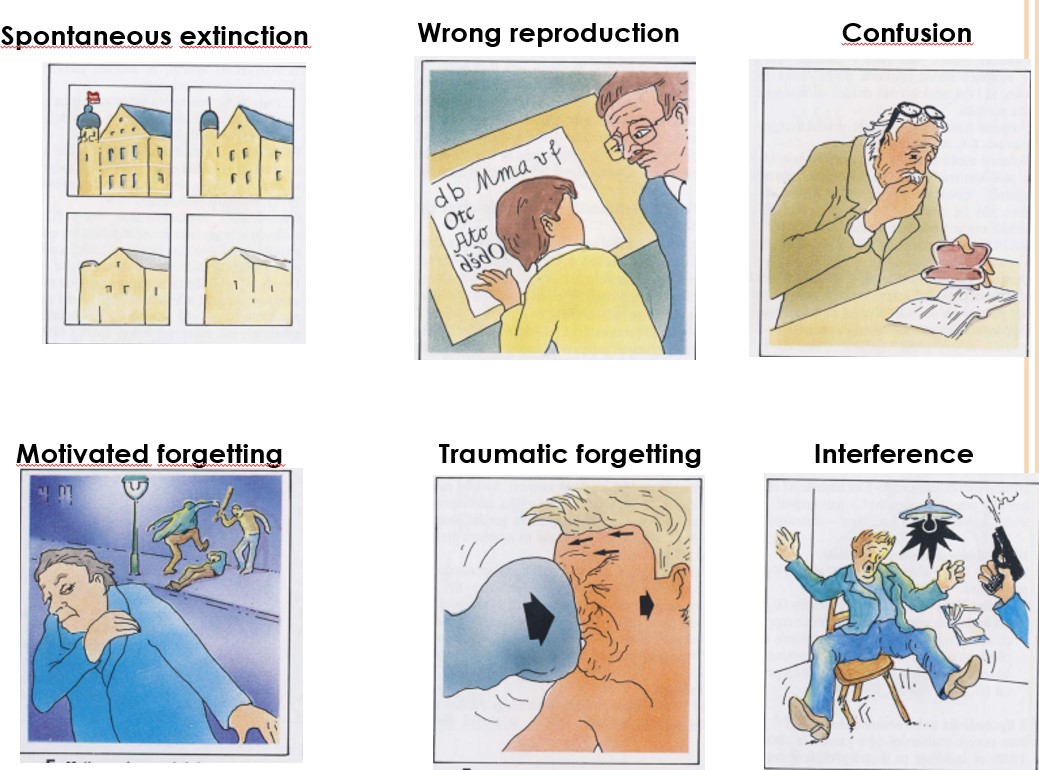Memory
Memory is the ability to take in information, store it, and recall it at a later time. In psychology, memory is broken down into three stages: encoding, storage, and retrieval.
Stages of memory:
- Encoding: the process of receiving, processing, and combining information. Encoding allows information from the outside world to reach our senses in the forms of chemical and physical stimuli. In this first stage we must change the information so that we may put the memory into the encoding process.
- Storage: the creation of a permanent record of the encoded information. Storage is the second memory stage or process in which we maintain information over periods of time.
- Retrieval (recall/recognition): the calling back of stored information in response to some cue for use in a process or activity. The third process is the retrieval of information that we have stored. We must locate it and return it to our consciousness. Some retrieval attempts may be effortless due to the type of information. Re-cognition is easier than recall. For example in a written multiplechoice test we are presented with possible answers. If we have learned about the topic before, we may re-cognise the correct answer among the choices. In recall we have to find our own cue.
Types of memory
According to memorized material:
Visual memory
Auditory memory
Motor memory (movement, dance)
Verbal-logical (semantic - relations between terms, meanings)
Memory for tastes and smells
According to the length of storage:
Ultrashort (also. immediate, "sensory register") - electrochemical irritation of brain cells, perceptions disappear after a few seconds (time of "presence" max 10 s), or pass into short-term memory
Short-term - immediate, working memory (up to 30s)
Medium-term - few hours
Long-term - we remember up to several years. Long-term memories can be categorized:
- explicit memory - also known as conscious or declarative memory, involves memory of facts, concepts, and events that require conscious recall of the information. Explicit memories can be either semantic (abstract, fact-based) or episodic (based on a specific event).
- implicit memory - also called “unconscious” or “procedural” memory involves procedures for completing actions. These actions develop with practice over time.
Forgetting
It is a failure to remember material previously learned. It varies from normal decay of memories (aging) to pathological process of losing memories as a symptom of more serious condition (amnesia, Alzheimer´s disease).

